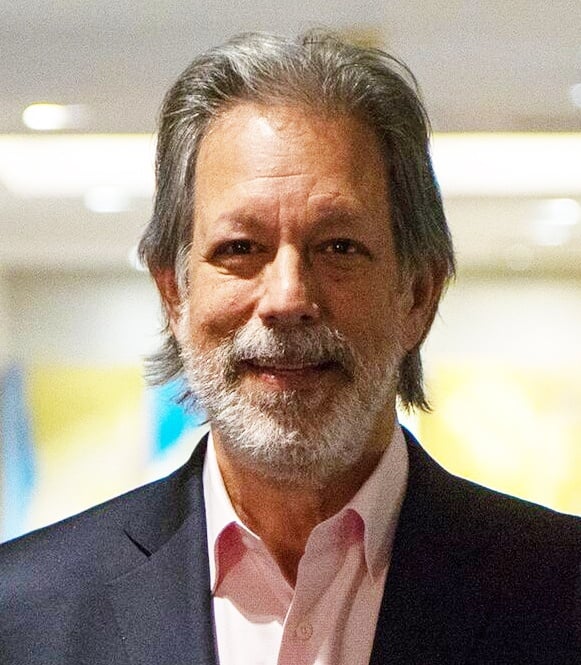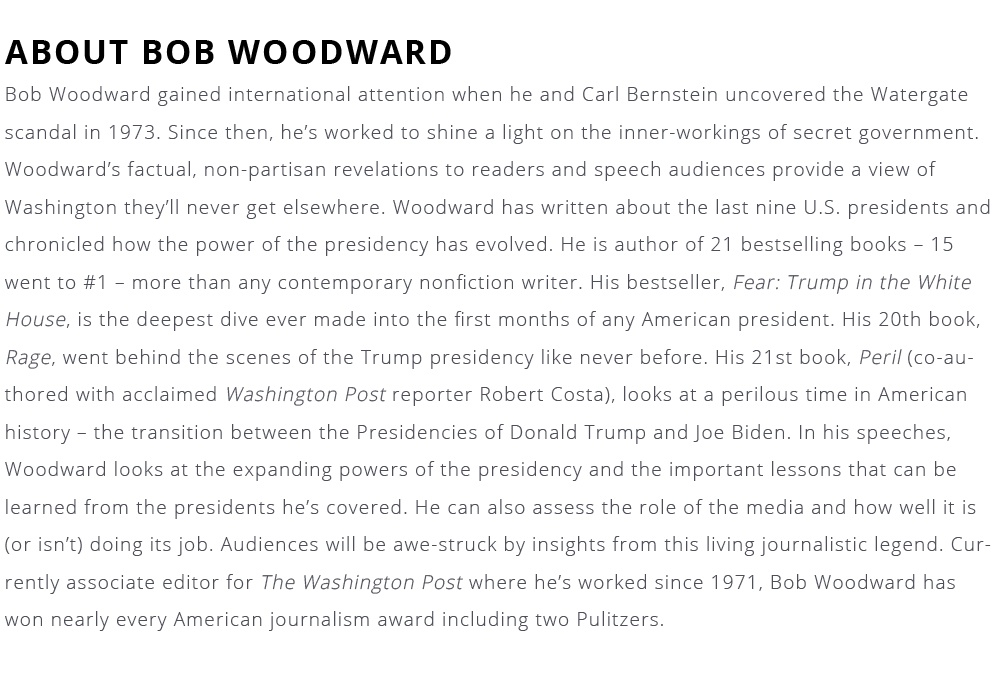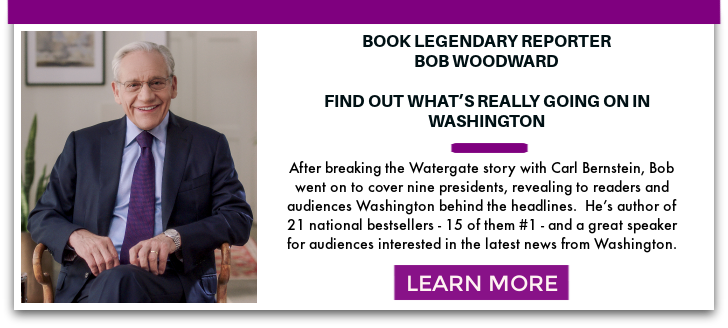Bob Woodward's MasterClass: How to Be an Investigative Journalist
REPORTERS HAVE THE BEST JOBS IN THE WORLD
"If someone came from Mars and spent a year traveling in the United States, and went back to Mars and was asked, Who has the best jobs? The answer would likely be the reporters. Because reporters necessarily spend their days asking questions about what is important. What is happening? What are people talking about? What is truly on their minds? What does it mean? What is hidden? What don't we understand? How can we better understand? Who should we talk to? Where should we go? What should we read? What should we study? What is the impact? Never once in 48 years at The Washington Post, did I ever hear an editor say, Go find something routine. Something boring. Reporters ordinarily don't do the routine. We also get to make momentary entry into peoples' lives when they are engaged in the big issues and conflicts. And we then are able to get out of their lives when they are no longer engaged. A lawyer or doctor, for example, is often saddled with clients and patients who have routine, cookie-cutter problems. They can get stuck. The investigative journalist shouldn't get stuck but gets to move on. As Howard Simons, the great managing editor of the Post during Watergate, often said, find a subject on which the sun is rising, not setting. Search for the rising sun.” – Bob Woodward
BOB WOODWARD’S MASTERCLASS
The words of legendary investigative reporter BOB WOODWARD make a great argument for why a reporter’s job is the best one ever. And the way he makes his case, it’s hard to argue otherwise. Reporters do indeed have a unique and fantastic profession.
Really accomplished reporters would prefer to let their work do the talking for them. When MasterClass asked Bob about doing an online MasterClass for investigative journalism, he was reluctant. At the time he had eighteen bestselling books (now nineteen) and he felt there was already so much written online about his work. And while it’s true just searching “Bob Woodward” in Google will net you more content about the man and his work than you could ever hope to consume, you would be hard-pressed to comprehensively learn from all of it how the best-known investigative reporter of our time goes about his work. What does he do? How does he do it? What lessons did he learn the hard way that he’ll never forget? What ethical and moral dilemmas did he wrestle with? All the skills and experience that make someone a master at their craft is what the world could really benefit from knowing – for the benefit of generations of reporters coming down the line – and at a point in history when truth itself is under siege.
I’m so delighted that Bob decided to move forward with MasterClass because we live in a time where the journalism profession is at risk. Many people get their news from sources that aren’t mainstream – and those sources don’t follow many of the rules that traditional journalists follow. Many readers are hard-pressed to tell the difference between news and opinion – and some traditional news sources get too close or over the line when it comes to objectivity. And then there are headlines and stories written purely as clickbait.
All of this is why the creation of Bob Woodward’s MasterClass could not be more important. It teaches people how to be an investigative journalist.
Trailer for MasterClass: BOB WOODWARD Teaches Investigative Journalism
THE BEST OBTAINABLE VERSION OF THE TRUTH
In the trailer for his MasterClass, Bob Woodward says “Everyone has their own version of the truth. But there are facts. There is reality. And as a reporter your job is to come up with the best obtainable version of the truth.”
He goes on, “Getting the best obtainable version of the truth takes precedence over everything: over political party and it takes priority even over sometimes having a sane personal life because if you’re going to practice journalism there are going to be periods of intensity when you are not just working on the story – you’re going to be living the story.
“Journalism is trying to take and understand something in a comprehensive way. What is surprising about journalism is that you wake up and go to the office and the air is so often electric. Look what happened! What went on? Somebody just came up here an hour ago and said “You won’t believe what happened!” That happens in the newsroom all the time. You’re never really, as a journalist, in a situation where you can’t really try to find out about something – even if it’s private – even if it’s highly classified – the biggest secrets in the U.S. government, journalists may go and make the inquiry because there’s such concentration of power in the government particularly in the presidency but the real important liberation for journalists I think is the Supreme Court decision in the pentagon papers. The New York Times and The Washington Post started printing these top-secret documents about the Vietnam war showing that there were so many lies and miscalculations. The Nixon administration tried to stop this publication and the supreme court in a 6-3 ruling said “no, we do not have a system where there is pre-publication censorship. The government is not going to be able to go in and stop you before you publish something. You can be held accountable after you publish.
“The reason the Washington Post’s motto is “Democracy Dies in Darkness” is that….it does!”
Former CIA director and Secretary of Defense Robert Gates said in 2014 wished he’d recruited Bob into the CIA because, “He has an extraordinary ability to get otherwise responsible adults to spill [their] guts to him…his ability to get people to talk about stuff they shouldn’t be talking about is just extraordinary and may be unique.” Therein lays the genius of Bob Woodward, the reporter.
The story is always evolving – don’t pre-judge
LEARN THE INSIDE STORY ON WHAT'S REALLY GOING IN WASHINGTON, AS ONLY LEGENDARY JOURNALIST BOB WOODWARD CAN TELL IT
WE ALL USE THE SKILLS OF JOURNALISM EVERYDAY
The information gathering, verifying, and communicating skills of a journalist are also skills that ordinary people use every single day, which is Bob’s point in his MasterClass. Everyone’s a journalist.
“I think anyone can be a journalist. I think are all journalists sometimes without knowing it and that is we get data, we ask about it, we test it, and we talk to other people about it.
“This is the living business of assessing information. In a sense we’re all whistleblowers, aren’t we? We see things we don’t like and we talk and we complain. The sister who sees her brother doing something he’s not supposed to do goes to mom or dad and blows the whistle. That’s journalism.”
Asked what advice he would give to young reporters, “Nothing is more important than cultivating sources and always double-check the facts,” he says. “Go back and interview people, multiple times, and build relationships and trust with people. Don’t make rookie mistakes, and listen to your editors and managers. It’s hard — a lot of reporters have become emotionally unhinged. It’s become emotional for them.”
Is there a future in journalism?
JOURNALISM IN THE INTERNET AGE
Perhaps nothing has transformed journalism more than the internet. The speed with which information is shared is one thing – but also now mainstream journalism competes with content offered by other platforms, many with specific agendas, and all eager for eyeballs that translate into advertising revenue. The world has turned into a news buffet where you can pick your echo-chamber and never be exposed to the variety of news that mainstream media has traditionally offered.
As Bob explains, “In the internet world people can say anything about anyone, so the question is how do you develop a system and a process to get it right. In this time when people distrust journalists - I think were as low on their approval rating as members of Congress or maybe lower. we have to present stuff in a way that people will say - ah - I can believe that - I can trust that
“In the Internet age people say it’s 24-7. That’s wrong. It’s every 10 minutes - seven days a week! So, that increases the pressure on the reporter, the editor, the news organization to get it out. Impatience and speed are driving so much in this that I think it’s certainly not serving the reader, or the viewer of the listener on radio - we need to pull back and see if there’s some way to have more patience and slow it down.
“There’s a saying in the military and in the intelligence business. The saying is - the first information is generally wrong. I think that’s true.”
Bob states that the key similarity between special counsel Bob Mueller’s investigation into Russian interference in the 2016 election and Watergate was the attacks on the press. In both cases, those who have or had a stake in the outcome of the investigations accused the press of publishing falsehoods.
On that subject Bob said, “Any president and his administration in Washington is clearly entitled to the most serious reporting efforts possible. We need to understand, to listen, to dig - obviously our reporting needs to get both facts and tone right. The press, especially the so-called mainstream media, comes under comes under regular attack, particularly during presidential campaigns and their aftermarket. Like politicians and presidents sometimes - perhaps too frequently - we make mistakes and go too far. When that happens, we should own up to it. But the effort today to get the best obtainable version of the truth is largely made in good faith.”
Investigative Journalism in the Internet Age
SUPPLEMENTAL READING: EXCLUSIVE INTERVIEW: BOB WOODWARD ON FEAR: TRUMP IN THE WHITE HOUSE and 45TH ANNIVERSARY OF NIXON'S RESIGNATION FIND BOB WOODWARD CRITICAL OF THE MEDIA
HAVE WE FORGOTTEN THE LESSONS OF WATERGATE?
As the two-time Pulitzer Prize-winning journalist who covered the Watergate scandal in 1973, Bob knows how the decisions — and values — of just one individual can change the course of an entire nation.
“The first lesson to extract from Watergate is the centrality of truth and how important the truth is to our political system, our democracy and the rule of law,” Woodward began.
“The question I ask, and this is not a partisan judgment is…if truth is central to democracy, how can we have a useful political dialogue, citizen understanding, even journalism, when we have a president who has somewhat quite successfully destroyed the common agreement about what is a fact?”
As Bob says in the closing moments of his MasterClass, “This is a time we’re being tested, let’s not kid ourselves. This is the final exam for democracy. It’s a very dangerous time. The only answer is better, more authoritative stories.”
As I stated at the top of my article here, I’m so grateful that Bob decided to make time to chronicle what went into his incredible career. His MasterClass reveals why he is held in such high regard by the public and journalists themselves. Bob Schieffer of CBS News perhaps said it best,"Woodward has established himself as the best reporter of our time. He may be the best reporter of all time."
The humbling truth behind the Nixon pardon
About Tony D'Amelio
Tony has spent his career putting talented people and audiences together, first in the music business and later representing the world's leading speakers. After concluding 27 years as Executive Vice President of the Washington Speakers Bureau, Tony launched D'Amelio Network, a boutique firm that manages the speaking activities of a select group of experts on business, management, politics and current events. Clients include: Mike Abrashoff, Mariana Atencio, Chris Barton, Lisa Bodell, Geoff Colvin, Daryl Davis, Suneel Gupta, Ron Insana, Katty Kay, Polly LaBarre, Nicole Malachowski, Ken Schmidt, and Bob Woodward.

.png)

.jpg)



